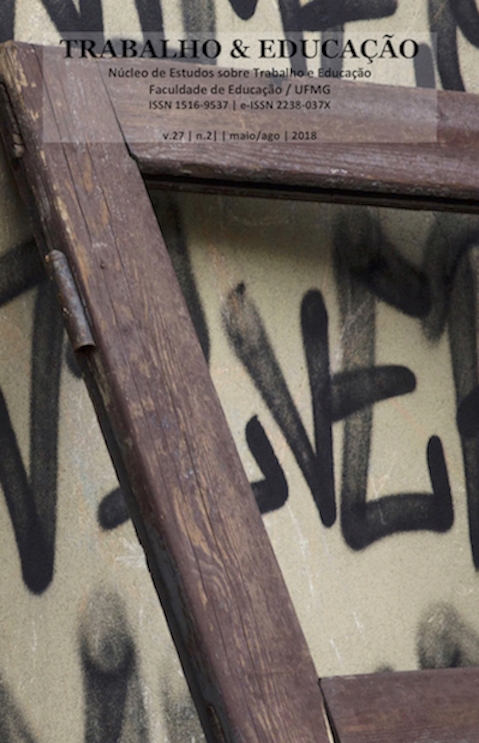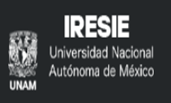INSERÇÃO DE EGRESSOS DO ENSINO TÉCNICO SUBSEQUENTE NO MUNDO DO TRABALHO: UM OLHAR A PARTIR DA FORMAÇÃO PROFISSIONAL EM HOSPEDAGEM / Insertion of graduates of subsequent technical education in the world of work: a look from the professional qualification in Hosting
Palavras-chave:
Educação Profissional, Inserção Profissional, Egressos, Ensino Técnico Subsequente, Professional Education, Professional Insertion, Graduates, Subsequent Technical EducationResumo
This research had as objective to identify and understand the process of professional insertion of graduates of a Tourism, Hospitality and Leisure course, in the subsequent modality, in a Federal Institute of Education, Science and Technology in the extreme south of Bahia. The methodology used was a qualitative exploratory approach, using bibliographical and documentary research and data collection from the application of questionnaires, focal group and semi-structured interviews. We divided the groups of respondents, from the questionnaires, into categories of analysis based on the experiences in this sector. In this way, the categories of graduates who worked and who work formally and informally had the data processed through documentary analysis, based on the Pedagogical Project of the Course and the National Curricular Guidelines for Technical Professional Education of the Middle Level, as well as and content analysis. In the context of the research, it was sought to characterize the profile of the egress, also identifying their desires by revealing the relationships that are established between the school, the profession and the world of work. When it is verified that there are few studies in the academic production that approach the technical formation of secondary education in the subsequent modality, especially related to the Tourism, Hospitality and Leisure axis, the theoretical reference that served as base for this study initially brings a brief approach on the history of Professional Education in Brazil, drawing attention to the place that the subsequent modality has been occupying in this trajectory. Considering aspects that involve, from the point of view of the subjects, both the experiences in the work and in the professional formation, we dialogue with some authors on Professional Education (MANFREDI, 2002; SAVIANI, 2003; KUENZER, 2010), the principles of professional polytechnical education (SAVIANI, 1989, MACHADO; 1992) and professional education of young people and adults (KUENZER, 1989; 2003; DAYRELL, 1992). We consider the concept of the "class-that-lives-of-work" from Antunes (2009) to represent graduates in the "world of work" (FIGARO, 2008), specifically in the service's sector. Considering that the hosting's sector is a representative part of the work in tourism, we draw a parallel between the other authors with the approaches that make Trigo (1998), Ansarah (2002) and Cooper, Hall and Trigo (2011) on education and work. The results pointed out that, contrary to what can be expected, these youngsters and adults do not aim to find only employment opportunities with the new profession, and recognize that the formation brought about changes in the perception of the world and in relation to work. In this way, we understand that Professional Education or, in this case, "Tourism Education" can fulfill an important part of its role in overcoming technical, manual, or "training" knowledge. It also represents, for these subjects, a formation that modifies the individual in order to broaden his critical world view and to empower him, parallel to what Saviani (1989) and Machado (1992) point out about the principles of formation polytechnic. In general, graduates present a critical view of the relationship between training, market and work in the sector: they feel devalued within the school by some aspects, which are related to structural problems in the institution, such as the lack of resources, for example. These problems, according to the academic review carried out for this research, are similar problems to other units of the Federal Network of Professional and Technological Education, and especially those that offer the subsequent modality and the night schedule. Regarding the work, they consider that the companies that represent the lodging market in the municipality and region do not recognize the technical professional and assign them functions that show little of the skills they believe to have been developed during the training. Based on the reflections raised on the basis of what the subjects of this research presented, based on other studies and the theoretical references presented here, we believe that there is an urgent need for research on the professional training of youth and adults, especially in the subsequent modality, once that the conceptual and historical changes in the public policies of Professional Education have affected and still structurally affect the quality of the supply of education in public institutions. Regarding the formation of this modality in the current Tourism, Hospitality and Leisure axis, we reinforce the importance of rethinking the forms of supply based on discussions, in the light of a critical analysis, that allows us to overcome the paths that reproduce historical inequality. Building on these aspects, it is possible to strengthen the prospects for the emancipation of young people and adults, through a professional formation that helps them to understand reality and in transformation of life, as well as simple technical and instrumental preparation.
___
Esta pesquisa objetivou identificar e compreender o processo de inserção profissional dos egressos de um curso do eixo Turismo, Hospitalidade e Lazer, na modalidade subsequente, em um Instituto Federal de Educação, Ciência e Tecnologia do extremo sul da Bahia. A metodologia foi de abordagem qualitativa exploratória, lançando mão da pesquisa bibliográfica e documental e da coleta de dados a partir de aplicação de questionários, grupo focal e de entrevistas semiestruturadas. Dividimos por grupos os respondentes, a partir dos questionários, em categorias de análise com base nas experiências de atuação no setor. Dessa forma, as categorias dos egressos que estagiaram e que trabalham formal e informalmente tiveram os dados tratados por meio de análise documental, com base no Projeto Pedagógico do Curso e das Diretrizes Curriculares Nacionais para a Educação Profissional Técnica da Nível Médio (DCNEPTNM), bem como da análise de conteúdo. Buscou-se, no contexto da pesquisa, caracterizar o perfil do egresso, identificando também os seus anseios ao se revelarem as relações que estabelecem entre a escola, a profissão e o mundo do trabalho. Ao se constatar que há poucos estudos na produção acadêmica que abordem a formação técnica de nível médio na modalidade subsequente, sobretudo estudos relacionados ao eixo Turismo, Hospitalidade e Lazer, o referencial teórico que serviu de base para este estudo traz, inicialmente, uma breve abordagem sobre a história da Educação Profissional no Brasil, chamando atenção para o lugar que a modalidade subsequente vem ocupando nessa trajetória. Por considerarmos aspectos que envolvem, do ponto de vista dos sujeitos, tanto as experiências no trabalho quanto na formação profissional, dialogamos com alguns autores sobre Educação Profissional (MANFREDI, 2002; SAVIANI, 2003; KUENZER, 2010), os princípios da formação profissional politécnica (SAVIANI, 1989; MACHADO, 1992) e da educação profissional de jovens e adultos (KUENZER, 1989; 2003, DAYRELL, 1992). Consideramos o conceito de “classe-que-vive-do-trabalho” de Antunes (2009) para representar os egressos no “mundo do trabalho” (FIGARO, 2008), especificamente no setor de serviços. Tendo em vista que o setor de hospedagem é uma parcela representativa do trabalho no turismo, traçamos um paralelo entre os demais autores com as abordagens que fazem Trigo (1998), Ansarah (2002) e Cooper, Hall e Trigo (2011) sobre formação e trabalho. Os resultados destacaram que, ao contrário do que se pode esperar, esses jovens e adultos não almejam encontrar apenas oportunidade de emprego com a nova profissão, e reconhecem que a formação trouxe mudanças na percepção de mundo e na relação com o trabalho. Entendemos, dessa forma, que a Educação Profissional ou, neste caso, a “Educação para o Turismo” consegue cumprir uma parte importante do seu papel ao ultrapassar o conhecimento técnico, manual, ou o “treinamento”. Representa, também, para estes sujeitos, uma formação que modifica o indivíduo no sentido de ampliar sua visão crítica de mundo e o empoderar acerca de suas capacidades, em paralelo ao que pontuam Saviani (1989) e Machado (1992) sobre os princípios da formação politécnica. Além disso, de forma geral, os egressos apresentam uma visão crítica sobre as relações entre formação, mercado e trabalho no setor: sentem-se desvalorizados dentro da escola por alguns aspectos, estes que perpassam problemas de ordem estrutural na instituição, como a falta de recursos materiais e humanos, por exemplo. Tais problemas, de acordo com a revisão acadêmica realizada para esta pesquisa, são problemas similares a outras unidades da Rede Federal de Educação Profissional e Tecnológica, e em especial naquelas que ofertam a modalidade subsequente e no turno noturno. Quanto ao trabalho, consideram que as empresas que representam o mercado de hospedagem no município e região não reconhecem o profissional técnico e lhes atribuem funções que pouco permitem mostrar as habilidades que acreditam ter sido desenvolvidas ao longo da formação. A partir das reflexões levantadas com base no que expuseram os sujeitos desta pesquisa, ambasadas por outros estudos e pelos referenciais teóricos aqui apresentados, entendemos que são urgentes e necessárias pesquisas sobre a formação profissional de jovens e adultos, em especial na modalidade subsequente, uma vez que as mudanças conceituais e históricas nas políticas públicas da Educação Profissional afetaram e ainda afetam estruturalmente a qualidade da oferta de ensino nas instituições públicas. Sobre a formação desta modalidade no atual eixo Turismo, Hospitalidade e Lazer, reforçamos a importância de se repensar as formas de oferta com base em discussões, à luz de uma análise crítica, que permita superar os caminhos que reproduzem a histórica desigualdade. Partindo destes aspectos, é possível fortalecer as perspectivas de emancipação dos jovens e adultos, por meio de uma formação profissional que os auxilie na compreensão da realidade e na transformação de vida, para além do simples preparo técnico e instrumental.













